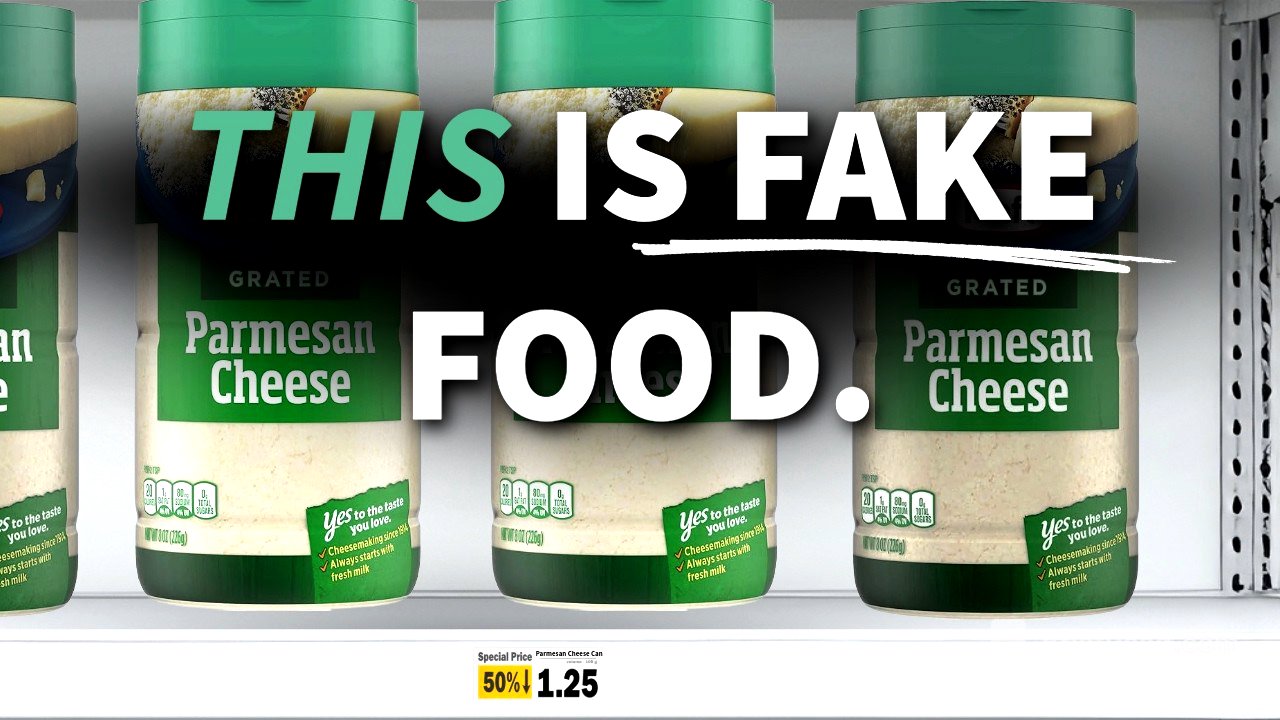TLDR;
The video discusses the prevalence of "fake food" in the United States, which are imitations of real foods that are chemically or structurally altered to be cheaper and more marketable. It contrasts the lax food labeling regulations in the US with the stricter protections in the European Union, where protected designations of origin (PDOs) ensure the quality and authenticity of traditional foods. The video explores how the pursuit of convenience and low-cost options after World War II led to the rise of processed foods, and how this trend impacts consumer health and the livelihoods of producers of authentic foods.
- "Fake food" is legally defined in the US as imitation food that is chemically or structurally altered to be cheaper, longer-lasting, and more marketable.
- The US has fewer protections on food labeling compared to the European Union.
- The European Union uses protected designations of origin (PDOs) to protect the heritage of food culture and help consumers recognize the real deal over imitation foods.
Intro [0:00]
The video introduces the concept of "fake food" in the United States, highlighting examples such as imitation cheese, syrup without maple, and Parmesan cheese held together with wood pulp. It points out that many foods consumed in the US are banned or tightly regulated in Europe due to the US having fewer protections on food labeling. The video references a lawsuit dismissal based on the idea that a "reasonable consumer" should know that a Pop-Tart doesn't contain a certain amount of strawberries. It also mentions a study showing that over half of the calories consumed at home by adults in the US come from ultra-processed foods.
What is "Fake Food"? [1:50]
"Fake food," or imitation food, is legally defined in the United States as food that looks and is sold like food but is chemically or structurally altered to be cheaper, longer-lasting, and more marketable. Examples include pasteurized processed cheese product, non-dairy whipped topping, bacon bits with no bacon, wasabi from chemicals, vanilla without the bean, and truffle oil (canola oil with chemical flavorant). While some of this comes down to economics, the growing falsification of foods means that many items are imitations of the real thing. The US does have laws on food labeling through the FDA and FSIS, but companies often find loopholes. Lawsuits are sometimes brought when labels don't reflect the content of the product, citing the 1975 Magnus Moss Warranties Act. However, not all fake food is bad, as it can provide ethical alternatives and allow those with dietary restrictions to enjoy a broader array of dishes.
How We Got Here [6:19]
After World War II, convenience became a priority, leading food companies to offer frozen dinners, processed cheese, and powdered eggs, prioritizing shelf life over flavor. Cheese making, originally a survival method, evolved into processed cheese, which is emulsified and cooked to be less perishable but no longer a living food. American cheese producers embraced processed cheese, leading to its widespread definition as a processed product. Kraft macaroni and cheese, introduced in 1937, became iconic, selling 8 million boxes in its first year. While the original recipe had few ingredients like sharp cheddar and skim milk, later versions added buttermilk powder and eventually more chemical ingredients. The FDA has established standards of identity (SOIs) for over 250 foods, defining their characteristics and ingredients, but these standards primarily ensure consistency with consumer expectations rather than preserving quality or heritage.
Europe Drew a Line [10:39]
The European Union employs the precautionary principle, requiring manufacturers to prove the safety of food additives before they enter the market. Protected designations of origin (PDOs) protect food culture and help consumers recognize authentic foods. A PDO is a legal label that establishes requirements for labeling traditional foods and wines, based on the idea that a place's geography and climate cannot be replicated. Examples include Kalamata olive oil, Champagne, Feta cheese, Gouda cheese, and Irish whiskey. However, it is difficult to protect these foods from copycats outside the EU. In the EU, Parmesan Reggiano is a PDO cheese with strict production methods, while in the US, various cheeses are passed off as parmesan, sometimes even containing cellulose or wood pulp. The EU's farm-to-fork strategy aims to create fair, healthy, and environmentally friendly food systems, combating food fraud through transparency and traceability, including origin disclosure and labeling.
Change on the Horizon [15:55]
There is a growing awareness of the link between diet and health, prompting consumers to seek foods with fewer artificial additives and preservatives. However, processed foods tend to be cheaper and have more calories, making them more accessible for those on a budget. Healthy food can be twice as expensive as less healthy food on a per-calorie basis, but buying cheaper, less healthy food can lead to health conditions and increased medical expenses. While some heritage foods are legally protected in the United States at the state level, such as Tennessee whiskey and Vidalia onions, these remain specialties rather than standards.
My opinion [18:28]
The real tragedy is that many Americans don't know what they're missing when they consume low-quality imitations of good food. While these imitations may not be physically harmful, they affect the reputation and livelihood of those who dedicate their lives to making authentic foods. These producers often can't compete with cheap imitations or have to sell at prices unattainable for the average American family.









